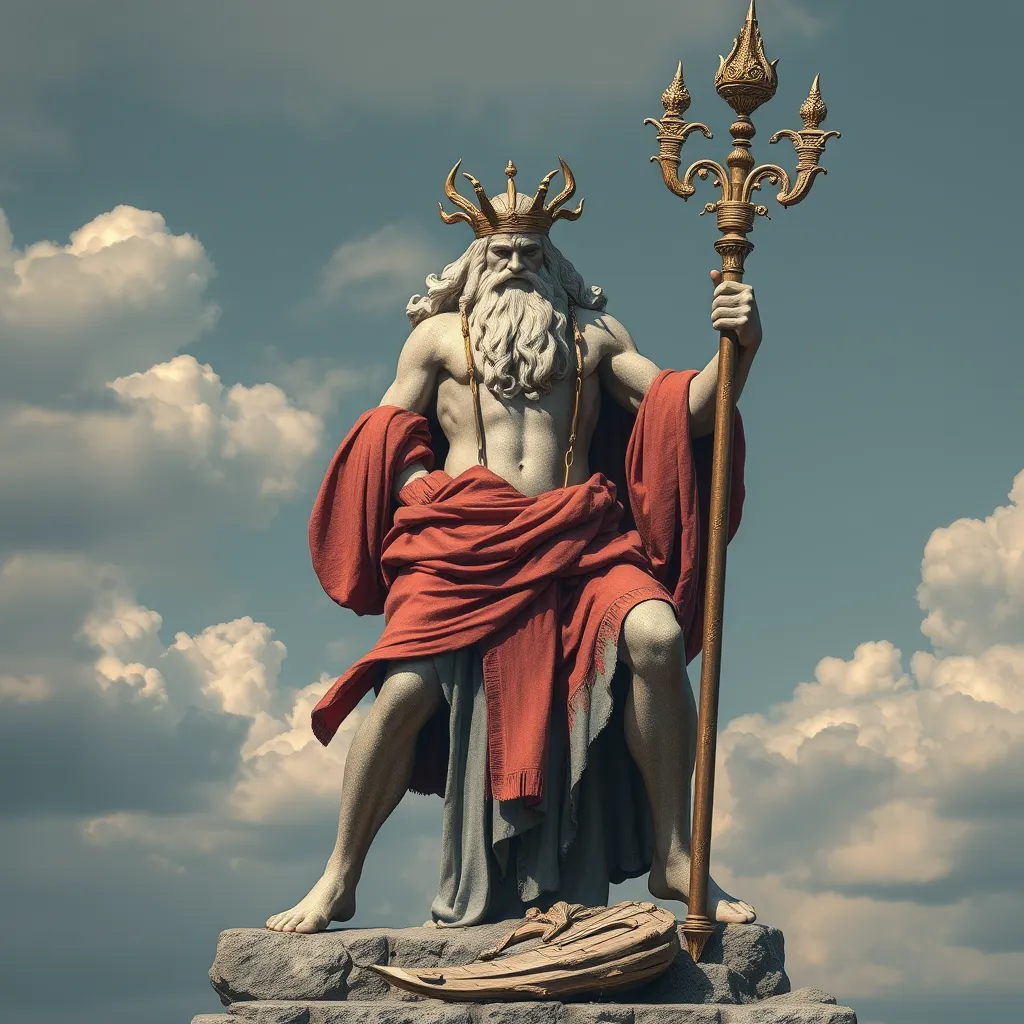Zeus and the Concept of Divine Retribution: Myths of Punishment
I. Introduction
Zeus, the king of the Greek gods, holds a prominent position in ancient mythology as the ruler of Mount Olympus and the god of the sky, lightning, and thunder. His persona embodies the complexities of divine power, especially in the context of justice and punishment. The concept of divine retribution, prevalent in many mythologies, finds notable expression in the tales surrounding Zeus. This article aims to explore the myths of punishment associated with Zeus, revealing the intricate relationship between his authority and the moral lessons conveyed through these narratives.
II. The Nature of Zeus
Zeus is characterized by several attributes and powers that define his role in mythology:
- Supreme Authority: As the ruler of the Olympian gods, Zeus wields immense power over both mortals and deities.
- God of Justice: He is often depicted as a protector of order and justice, ensuring that divine laws are upheld.
- Protector and Punisher: Zeus embodies a duality; he can be a benevolent protector but also a fierce punisher of those who transgress moral boundaries.
This duality allows Zeus to maintain cosmic balance, as he rewards virtue and punishes vice, reflecting the essential nature of justice in the ancient world.
III. The Myth of Prometheus
One of the most significant myths of punishment involving Zeus is the tale of Prometheus, a Titan known for his intelligence and defiance against the gods.
- Background of Prometheus: Prometheus is credited with the creation of humanity and the act of stealing fire from the gods to give to mortals, an act that symbolizes enlightenment and progress.
- The Act of Defiance: By stealing fire, Prometheus challenged Zeus’s authority, representing the struggle between divine power and human aspiration.
- Zeus’s Punishment: In response, Zeus condemned Prometheus to eternal torment, having him bound to a rock where an eagle would eat his liver daily, only for it to regenerate each night. This punishment signifies the severe consequences of defiance against divine authority.
The implications of this myth highlight the theme of divine retribution, illustrating how Zeus enforces order and punishes those who disrupt it.
IV. The Tale of Lycaon
The story of Lycaon further exemplifies Zeus’s role as a punisher of hubris and impiety.
- Introduction to Lycaon: Lycaon, the king of Arcadia, challenged Zeus by questioning his divinity and testing his omniscience.
- Zeus’s Response: In retaliation for Lycaon’s impiety, Zeus transformed him into a wolf, a creature often associated with savagery and primal instincts.
- Significance of the Punishment: This metamorphosis serves as a potent reminder of the consequences of disrespecting the gods, illustrating how divine retribution can manifest in physical transformation.
V. The Punishment of Arachne
The myth of Arachne presents another dimension of Zeus’s role in enforcing divine order through punishment.
- Arachne’s Hubris: A talented mortal weaver, Arachne boasted that her skills surpassed those of Athena, the goddess of wisdom and warfare, and challenged both Athena and Zeus to a weaving contest.
- The Contest: Arachne’s tapestry depicted the gods in an unflattering light, showcasing her defiance. While her weaving was flawless, it was deemed disrespectful.
- Metamorphosis into a Spider: After her defeat, Arachne was transformed into a spider, condemned to weave for eternity. This punishment serves as a reflection of her hubris, emphasizing the notion that challenging the divine can lead to dire consequences.
VI. The Destruction of Sodom and Gomorrah (Comparative Mythology)
While Zeus is a central figure in Greek mythology, themes of divine punishment also appear in other cultural narratives, such as the biblical tale of Sodom and Gomorrah.
- Overview of the Biblical Narrative: In the Bible, Sodom and Gomorrah were destroyed by divine wrath due to their wickedness and immorality.
- Comparison to Greek Myths: Similar to Zeus’s punishments, the destruction of these cities reflects a universal theme of retribution against moral corruption and hubris.
- Zeus’s Role: While not directly involved in this narrative, Zeus’s myths resonate with the overarching theme of divine justice found in various cultures, highlighting shared human concerns regarding morality and retribution.
VII. The Role of Fate and Free Will
In Greek mythology, the interplay between fate and free will plays a crucial role in shaping the narratives of punishment.
- Divine Will vs. Human Actions: The myths often illustrate the tension between what the gods desire and the choices humans make, leading to inevitable consequences.
- Concept of Hubris: Hubris, or excessive pride, frequently leads mortals to challenge the gods, ultimately resulting in punishment. This theme serves as a cautionary tale about the dangers of overstepping boundaries.
- Shaping Myths of Punishment: These elements of fate, free will, and hubris are integral to understanding how myths of punishment are constructed and the lessons they convey.
VIII. Conclusion
In summary, Zeus’s role in divine retribution is vividly illustrated through various myths that convey moral lessons about justice, hubris, and the consequences of defying the divine order. From Prometheus’s eternal torment to Arachne’s transformation into a spider, these stories reflect the complexities of human behavior and the expectations placed upon mortals by the gods.
These myths not only serve as tales of punishment but also as reflections on the nature of justice, morality, and the human condition. The enduring legacy of Zeus continues to resonate in contemporary discussions about justice and punishment, reminding us of the timeless relevance of these ancient narratives.




